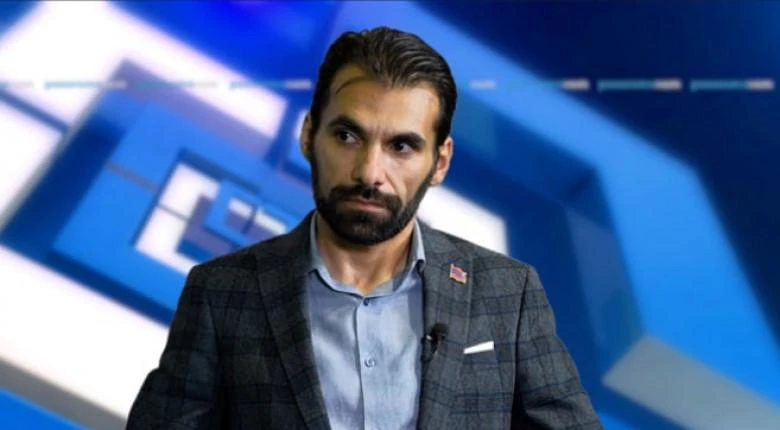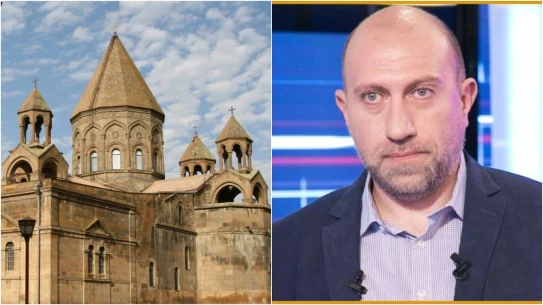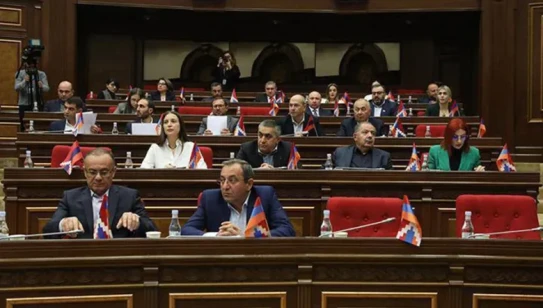"Fact" writes: "It is possible to sign a" peace agreement "at the moment or not. It depends on what international conditions will be. At the moment, I do not see both regional and international situation, under which Azerbaijan would have to sign the agreement. Why do I emphasize, it would have to be forced because Azerbaijan will not sign an agreement at this time, as it has preconditions and each time they will increase. As long as the Armenian authorities will start satisfying regular preconditions, new preconditions will come forward. If we take the events of 2021, their logic, the negotiation process, and its development trends, we will see that Azerbaijan's demand has been granted by the Armenian side, a new demand has been a new demand. At the same time, these requirements are first generated through Azerbaijani media, the discussion is being held here, after which it returns to the government, from which it sounds as an official requirement. This is a clear manuscript, a strategy that Azerbaijan has done quite successfully so far, and political scientist Ara Poghosyan expresses such an opinion on the developments on the "peace agreement". "I think the border tensions, by and large, are not only a way to put pressure on the authorities, but a means of ensuring legitimacy to meet the authorities. During every regular escalation, the Armenian government meets its preconditions, "said our interlocutor. "There is no direct Armenia independent state in its national and state philosophy, there is no. It can be theoretically Armenia in the national and state strategy of Azerbaijan and Turkey, but not in the form we imagine. Therefore, all the efforts will be made to weaken Armenia and Turkey's discretion, communications with these communications, and so to speak, which may have the ability to live in theory, but not an independent state that we have. This is the strategy of these two countries, and it does not allow them to go to peace with Armenia at the moment. Only a precondition for peace in the region can be established in the region, establish a new military-political balance. It is no coincidence that Bayramov states that the South Caucasus has been established in the South Caucasus in accordance with the new realities. Their task is to fix that status quo. This booking does not simply sign a document, they imagine Armenia, nominating preconditions and taking the keys to Armenia's sovereignty. I think that at the moment, both border shots and the preconditions of Azerbaijan are part of a common strategy that apply against the Republic of Armenia and the Armenian people, "he added.
Azerbaijan has always raised the issue of non-governmentalization of Armenia and a regular army. Unfortunately, the bill under discussion is in line with these thoughts, when it is actually offered to pay and serve as little as those who leave for conscripts. In this way, the foundations of the army are violated. In this regard, Poghosyan says. "I talked about the establishment of a new military-political balance in the region. And the first and most important components is one of the economic and military. If you are able to satisfy the military component, it will have its influence on the restoration of both political and diplomatic and economic balance. Each state and foreign investment will come to Armenia exclusively when Armenia will be able to ensure the security of investments. As long as it does not exist, Armenia will not invest. If investments do not come, economic development simply must be forgotten. Therefore, all this is a common complex, one of the most components of which is the state's military policy. For a state that does not have a depth, the issue is a deadly military service with the possibility of common mobilization of society. "Release people from military service means reducing, reducing the country's military policy," he said.
We live in a changing world. Yesterday's terrorist is the hands of the superpowers, the deportation of the superpowers and the deportation of their cradles and the genocide. The "We are our hope" must be guided by, but you can't solve only problems in the world. How not to become coins in the hands of the strong? "International relations are mainly based on national strategies. I call it to foreign relations or diplomatic doctrine. Doctrinal external policy of any state can also make attractive. It implies a consistent foreign policy line, that is, predictable foreign policy behavior by the given state. To ally with the state, we must first understand what they want. If we do not know what the state wants to receive and receive from the world, we cannot consider that state as our allies, at the best of the moment we will use the state, again what kind of political behavior will be of political behavior. The Republic of Armenia does not have a doctrinal foreign policy, has a reactionary foreign policy, responds to various political situations according to the realization or convenience. And this is an inadequate foreign policy, which is not predictable for your partners, which actually have a deep national common interests with you. Let me give the latest cases related to India, which at least at least in a cold conflict is currently trying to enter Turkey and Azerbaijan. There was a vision that Armenia is one of the main anti-Turkish states. It was formed from Armenia's foreign policy in the past. We are constantly perceived by anti-Turkish states. Due to this, India has an opinion that Armenia and Greece may be its best allies. Deepening in Armenia's foreign policy, the long-term perspective of this vision will be maintained. I think not, in the over time, the non-adequate foreign policy of Armenia will lead to the states that at least they have at least over Armenia, again in the range of these interests. The lack of doctrinal foreign relations leads to loneliness for the state, because you do not know what you want, your potential partners do not know what you want in what geopolitical situation will compete with your interests. If you have predictable foreign policy behavior, they are confident that it can be based on you, it is your foreign policy, it is a beneficial zone for you. If there are no beneficial zones, and you run a reactionary foreign policy, even if the interests seem to coincide, no one can be sure that your vision will not change in this or that situation, "says our interlocutor."


























